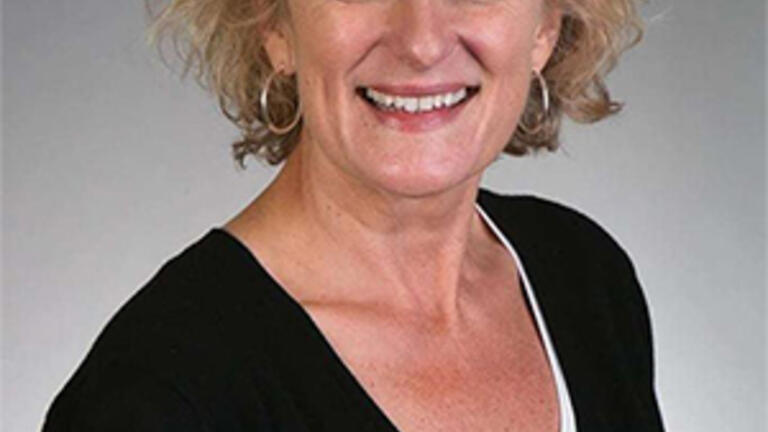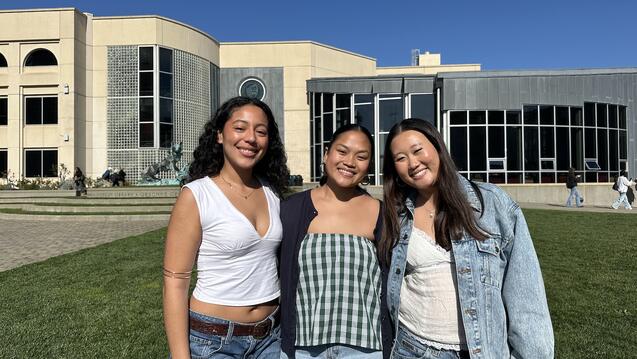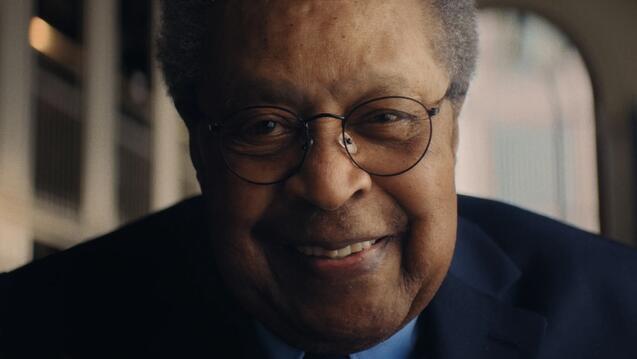
"As Long as it Takes” and “A Home Within" - The Effectiveness of Psychoanalytic Play Therapy with Foster Youth

Dr. June Madsen Clausen, Program Director of USF’s Clinical Psychology PsyD Program, has been studying the mental health of children in foster care for more than 20 years. Her latest work, which describes the impact of long-term psychotherapy for adolescents in foster care, was recently published in the Journal of Child and Adolescent Trauma. This research was conducted by the Foster Care Research Group in collaboration with ‘A Home Within,’ a national nonprofit organization that provides pro-bono, long-term mental health services to current and former foster children. Her work continually highlights the pivotal importance of therapy to support the journey of foster youth through the myriad challenges of their lives.
Foster Children - A profoundly vulnerable population
Foster care is a system designed to protect children and youth from potentially unsafe environments by legally removing them from their homes. Children under 5 years of age make up the largest group of youth entering foster care, accounting for one-third of the children in out-of-home care in the United States (U.S. Department of Health & Human Services, Administration on Children, Youth & Families, 2012) (1). There are more than 500,000 children in foster care in the United States; many of them facing complex physical, mental, and developmental health problems. Childhood trauma has a profound impact on the emotional, behavioral, cognitive, social and physical functioning of children (2), and subsequently, will most likely shape their future in significant ways.
Foster youth, as compared to the non-foster youth population, have higher rates of a variety of different mental health symptoms, as well as higher rates of juvenile justice involvement, incarceration, teen pregnancy, and homelessness, and lower rates of educational achievement and high school graduation."
– Dr. June Madsen Clausen, Personal Communication, 2018
Foster youth are the unfortunate victims of some profound failures of society – their initial experiences of maltreatment and family separation that often fails to provide the necessary therapeutic interventions and stable, caring home environment to mitigate the impact of trauma and removal from home.
The current system of processing foster kids goes by the term ‘concurrent planning’ and is considered “best practice” among child welfare experts, who guide the process and assign a case worker to work toward family reunification while finding an appropriate foster home for the child if family reunification is not possible. However, concurrent planning does not require or enable behavioral or psychological therapy.
The stories one hears about what happens after a child is placed in foster care can be, paradoxically, more upsetting than the ones leading to the foster care placement. Foster care is a system created to protect children from an unsafe home environment, yet multiple foster home placements, conflictual or nonexistent relationships between foster parents and birth parents, long, drawn-out court battles, and the reality of living in an ongoing state of not knowing when or if they will be going home are just some of the challenges many children in care are expected to manage"
– Lewis, 437, “Providing Therapy to Children and Families in Foster Care – A Systematic Approach.” (3)
Critics of the foster care system highlight that family reunification is often put on the back burner as States quickly move toward ‘alternative permanency’ (or placing the child at a foster home). In this case, a focus on bureaucratic efficiency can often unnecessarily harm the parent/child relationship when a more empathetic solution may be possible.
Scholars like Dr. Clausen advocate for the therapist as the person in the best position to assess the child’s needs, provide necessary interventions, and help the state with making appropriate decisions about a particular case.
Dr. June Madsen Clausen’s work studying Foster Youth

Dr. Clausen ’s scholarship advocates for long-term mental health interventions for foster youth. Dr. Clausen grew up in Los Gatos, California and became interested in studying psychology during her undergraduate years as a Biology major at the University of California, Los Angeles. Following her interest, she entered the Joint Doctoral Program in Clinical Psychology at the University of California at San Diego and San Diego State University. During her second year of graduate school, she was selected to be a part of an “interdisciplinary training program in child abuse and neglect,” funded by a federal grant, with students from Social Work, Medicine, Nursing, Law, and Psychology. Through various ride-alongs with the police and social workers, listening in on child abuse hotlines, and observing nurses and physicians at hospitals, the program had a profound impact on her and sparked her interest in advocating for the importance of mental health interventions for foster youth.
In her 1998 publication, “Mental Health Problems of Children in Foster Care,” Dr. Clausen begins to make a strong case for the benefits of behavioral intervention on foster youth. She posits that a majority of the mental health problems faced by foster youth come from the repercussions of the maltreatment that got them into foster care, the experience of being in foster care separated from their family and loved ones, as well as from the added effects of marginalization for those who are low-income and/or racial minorities.
Indeed, the movement from his/her own home to the foster home engenders feelings of rejection, guilt, hostility, anger, abandonment, shame, and dissociative reactions in response to the loss of a familiar environment and the separation from family and community (e.g., Katz, 1987). Clearly, a child who is abused or neglected and is subsequently removed from the home is at great risk for the development of mental health problems."
– Clausen, 1998
Dr. Clausen’s 2013 publication, “For As Long As It Takes: Relationship-Based Play Therapy for Children in Foster Care” assesses the profound lack of support foster youth experiences after the initial trauma of family separation. Foster youth, especially those from low income or ethnic minorities, rarely receive adequate mental health care, and even when they do, they do not receive it consistently. Despite their great need for therapy, many foster kids may never see a licensed therapist - and the ones that do, often end up seeing multiple therapists, causing discontinuity and confusion which affects the quality and effectiveness of care.
The lack of consistent, long-term, therapeutic intervention not only leads to inconsistent care that impedes progress but hospitals serves to confirm the youths’ expectations that all relationships are temporary."
– Clausen, 44, For as long as it Takes
In order to mitigate these factors, Dr. Clausen recommends that mental health therapy be of sufficient complexity and duration to regain trust and make room for progress. To that end, she proposes the following methods for providing effective therapy for this vulnerable population:
Psychoanalytic Psychotherapy: Therapy provides foster youth a place safe from harm, where they can let their guard down and explore their thoughts, feelings and make new connections. The use of psychoanalytic psychotherapy to treat foster youth is designed to “understand the individual’s attempts to protect and defend the integrity of the self when exposed to external and internal triggers” and “offers a way to understand unresolved needs and desires as a means to facilitate healthy development” (Clausen, 45, 2013). In other words, psychoanalytic psychotherapy is an effective way to treat trauma as it offers the patient an opportunity to rebuild previously injured parts of the self.
Foster youth are hard to treat - because you are often working (as a therapist) in a context where you don’t have access to parent informants, teachers, or physicians. There’s a lot of change, chaos, and transiency in your patient’s life and you are just trying to hang on as a therapist and try to be present for him or her."
– Dr. June Madsen Clausen, Personal Communication, 2018
Consistent Relationships: Dr. Clausen emphasizes the importance of building lasting relationships with the foster youth patient; success of psychoanalytic psychotherapy relies on building new connections and memories to replace past traumas and injuries.
We know that the experience of being “known” is profoundly important. It is difficult to imagine either a psychic or functional realm in which this does not apply. Children from intact families typically have one or both parents who are acutely aware of their likes and dislikes, fears and traumas."
– Clausen, 47, For As Long As It Takes
Play Therapy: Dr. Clausen advocates for the use of psychoanalytic play therapy for foster youth. Foster youth are often quite young - based on data from the Children’s Bureau (6), the average age of children entering foster care is between 6.3 to 7.8 years. At this age, children are not developmentally capable of experiencing abstract thoughts or expressing complex emotions. Instead, children use play to learn, develop, express feelings and regulate emotions. She describes psychoanalytic play therapy as an approach that, “utilizes the benefits of play and provides children with meaningful opportunities to symbolically share and process their feelings and thoughts.”(Clausen, 47, For as long as it takes)
A Home Within
Launched in the 1990s in San Francisco, ‘A Home Within’ is a mission-driven national nonprofit organization dedicated to the emotional wellbeing of current and former foster youth. Therapists provide pro-bono treatment to foster youth for “as long as it takes” with a nationwide network spread across 22 states. The agency has over 400 volunteer therapists and partnerships with other renowned child welfare organizations.
Dr. Clausen has worked closely with A Home Within to study the effectiveness of mental health interventions on foster youth of various age categories, serving as Research Director for many years. Her 2012 Psychoanalytic Social Work article focused on the impact of long-term psychoanalytic psychotherapy on school-aged foster youth, her 2016 Journal of Family Social Work article focused on children less than 5 years of age, and her 2018 Journal of Child and Adolescent Trauma article focused on adolescents. Together with her colleagues, Dr. Clausen published a book in 2013, Treating Trauma: Relationship Based Psychotherapy with Children, Adolescents, and Young Adults, which provides case examples of the A Home Within treatment approach.
Her work demonstrates that the children receiving treatment through A Home Within experience reduced anxiety, depression, dissociative symptoms, school problems, and aggression and experience an improvement in their peer relationships. The studies highlight the importance of ensuring that the children receive long-term psychotherapy to recover from their psychological injuries.
As indicated in her most recent publication, these studies provide evidence for the importance of consistent mental health support and related resources for foster youth:
the significance of symptom change in this community-based pilot study provides a first, small step towards establishing an evidence base for the effectiveness of relationship-based, long-term treatment for a population of traumatized adolescents who present with complex psychiatric issues."
– Clausen, A Descriptive Analysis of Long-Term Treatment with Adolescent-Aged Foster Youth
Clausen, A Descriptive Analysis of Long-Term Treatment with Adolescent-Aged Foster Youth
Foster children are a uniquely vulnerable population - experiencing multiple forms of trauma both through the experiences of initial maltreatment or neglect and the subsequent experiences of family separation and unstable relationships. As a result, these vulnerable youth exhibit complex mental health conditions which negatively impact their ability to succeed, maintain wholesome relationships and live fuller lives. Dr. Clausen’s research demonstrates the positive impact of psychoanalytic psychotherapy on a wide spectrum of behavioral symptoms and helps make the case for making long-term treatment the standard of care for foster children.
- U.S. Department of Health and Human Services, Administration for Children and Families, Administration on Children, Youth and Families, Children’s Bureau. (2012). Child maltreatment 2011. Retrieved from: http://www.acf.hhs.gov/programs/cb/research-data-technology/statistics-research/child-maltreatment
- American Academy of Pediatrics, Committee on Early Childhood Adoption and Dependent Care. Developmental issues for young children in foster care. Pediatrics (2000) 106:11
Lewis, C. (2011). Providing therapy to children and families in foster care: A systemic‐relational approach. Family Process, 50(4), 436–452 - Clausen et al. 1998. J.M. Clausen, Ganger Landsverk J, Chadwick W, D.,&, A. Litrownik. Mental health problems of children in foster care.
- Clausen J. M., RuffS. C., Wiederhold W. V., & Heineman T. V. (2012). For as long as it takes: Relationship-based play therapy for children in foster care. Psychoanalytic Social Work, 19, 43–53.[Taylor & Francis Online],
Child Welfare Information Gateway, Foster Care Statistics 2016 (Apr. 2018) at 2 (available at www.childwelfare.gov/pubPDFs/foster.pdf). - Heineman, T. V., Clausen, J. M., & Ruff, S. (Eds.). (2013). Treating trauma: Relationship-based psychotherapy with children, adolescents, and young adults. Jason Aronson Publishing Company. https://doi.org/10.13140/2.1.1941.6961.
- Aba Center on Children & The Law, NCJFCJ, & Zero To Three, Healthy Beginnings, Healthy Futures: A Judge’s Guide, 101 (2009)
- Ruff, S. C., Jones, C. L., Clausen, J.M. (2018). A descriptive analysis of long-term treatment with adolescent-aged foster youth. Journal of Child and Adolescent Trauma.DOI: https://doi.org/10.1007/s40653-018-0233-9
- Ruff, S. C., Aguilar, R.M. Clausen, J.M. (2016). An exploratory study of mental health interventions with infants and young children in foster care. Journal of Family Social Work, 19(3), 184-198.
- Tumin, Remi. (2019, Jan 21). She’s Lived in More Than 8 Foster Homes. Now She’s Going Out on Her Own. The New York Times. Retrieved from http://www.nytimes.com
Notes:
- Perry BD, Pollard RA, Blakley TL, Baker WL, Domenico V. Childhood trauma, the neurobiology of adaptation, and “use-dependent” development of the brain: how “states” become “traits.” Infant Mental Health J. 1995;16:271–291
- Werner EE, Smith RS. Vulnerable but Invincible: A Longitudinal Study of Resilient Children and Youth. New York, NY: Adams, Bannister, Cox; 1982


